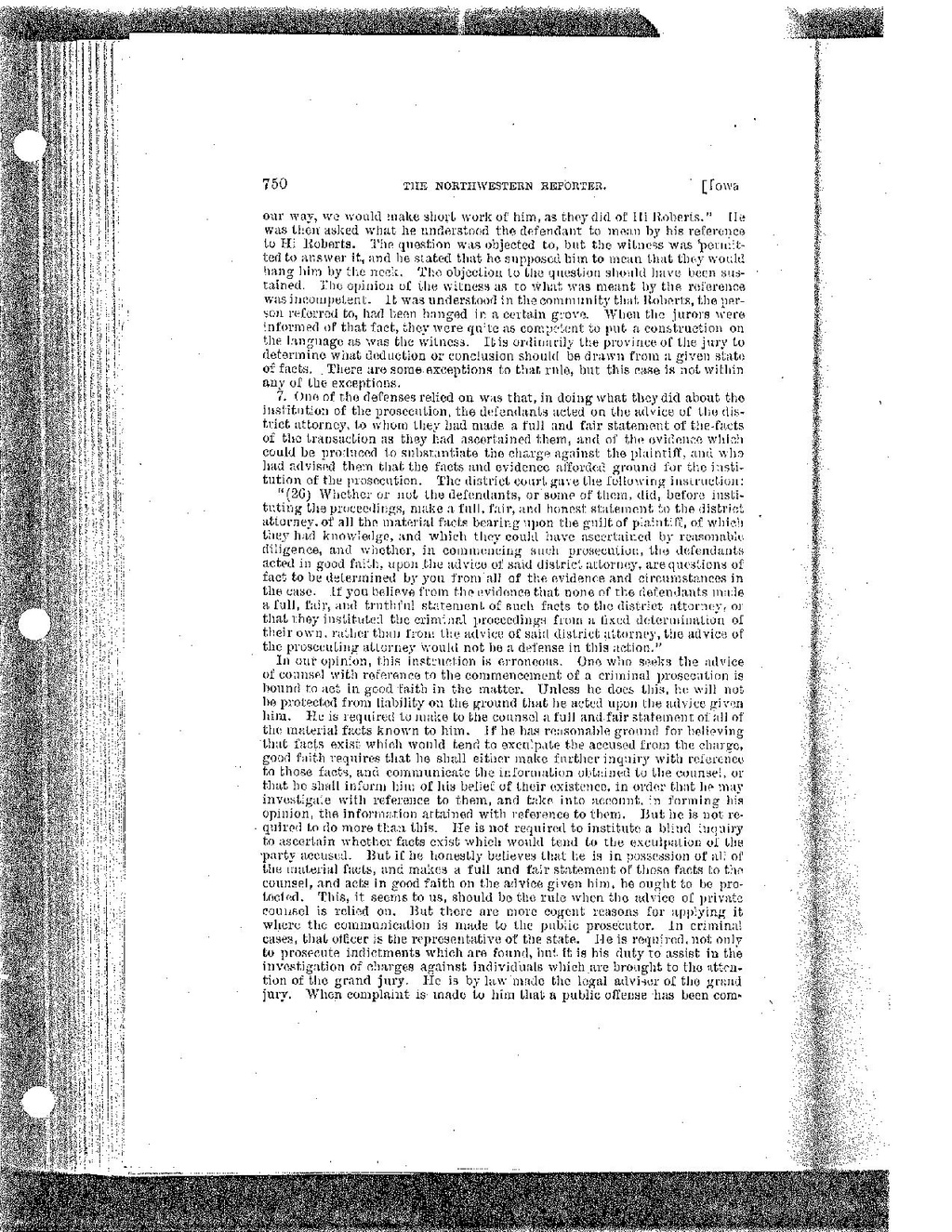our way, we would make short work of him, as they did of Hi Roberts." He was then asked what he understood the defendant to mean by his reference,
to Hi Roberts. The question was objected to, but the witness was 'permitted to answer it, and he stated that he supposed him to mean that they would hang him by the neck. The objection to the question should have been sustained. The opinion of the witness as to what was meant by the reference was incompetent. It was understood in the community that Roberts, the person referred to, had been hanged in a certain grove. When the jurors were informed of that fact, they were quite as competent to put a construction onthe language as was the witness. It is ordinarily the province of the jury to determine what deduction or conclusion should be drawn from a given state of facts. There are some exceptions to that rule, but this case is not within any of the exceptions.
7. One of the. defenses relied on was that, in doing what they did about the institution of the prosecution, the defendants acted on the advice of the district attorney, to whom they had made a full and fair statement of the facts of the transaction as they had ascertained them, and of the evidence which could be produced to substantiate the charge against the plaintiff, and who had advised them that the facts and evidence accorded ground for the institution of the prosecution. The district court gave the following instruction:
"(26) Whether or not the defendants, or some of them, did, before instituting the proceedings, make a full, fair, and honest statement to the district attorney, of all the material facts bearing upon the guilt of plaintiff, of which they had knowledge, and which they could have ascertained by reasonable diligence, and whether, in commencing such prosecution, the defendants acted in good faith, upon the advice of said district attorney, are questions of fact to be determined by you from all of the evidence and circumstances in the case. If you believe from the evidence that none of the defendants made a full, fair, and truthful statement of such facts to the district attorney, or that they instituted the criminal proceedings from a fixed determination of their own, rather than from the advice of said district attorney, the advice of the prosecuting attorney would not be a defense in this action."
In our opinion, this instruction is erroneous. One who seeks the advice of counsel with reference to the commencement of a criminal prosecution is bound to act in good faith in the matter. Unless he does this, he will not be protected from liability on the ground that he acted upon the advice given him. He is required to make to the counsel in full and fair statement of all of the material facts known to him. If he has reasonable ground for believing that facts exist which would tend to exculpate the accused from the charge, good faith requires that he shall either make further inquiry with reference to those facts, and communicate the information obtained to the counsel, or that he shall inform him of his belief of their existence, in order that he may investigate with reference to them, and take into account in forming his opinion, the information attained with reference to them. But he is not required to do more than this. He is not required to institute a blind inquiry to ascertain whether facts exist which would tend to the exculpation of the party accused. But if he honestly believes that he is in possession of all of the material facts, and makes a full and fair statement of those facts to the counsel, and acts in good faith on the advice given him, he ought to be "protected. This, it seems to us, should he the min when the advice of private counsel is relied on. But there are more cogent reasons for applying it where the communication is made to the public prosecutor. In criminal cases, that officer is the representative of the state. He is required not only to prosecute indictments which are found. but it is his duty to assist in the investigation of charges against individuals which are brought to the attention of the grand jury. He is by law made the legal adviser of the grand jury. When complaint is made to him that a public offense has been com-

